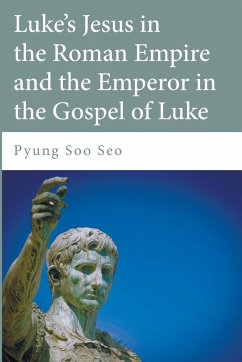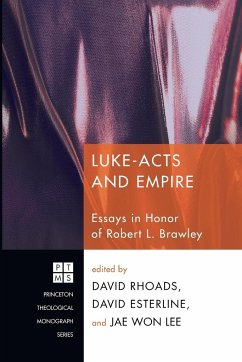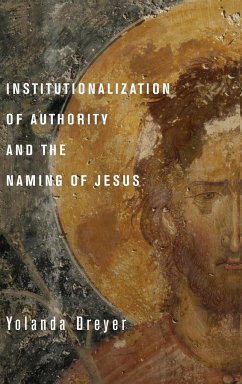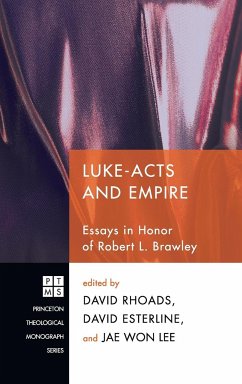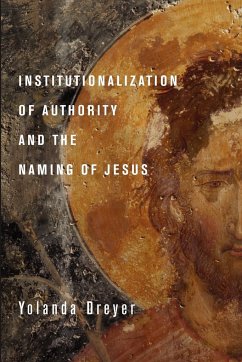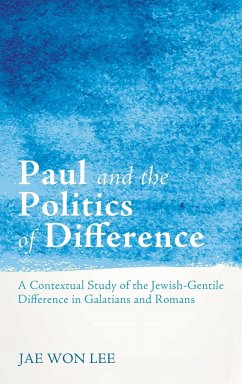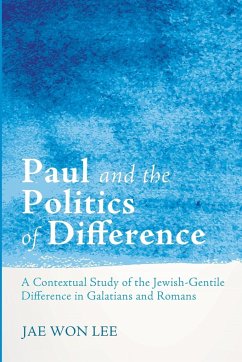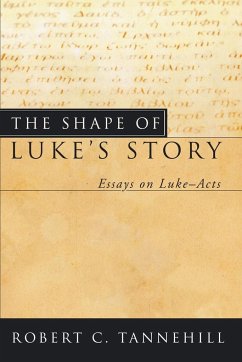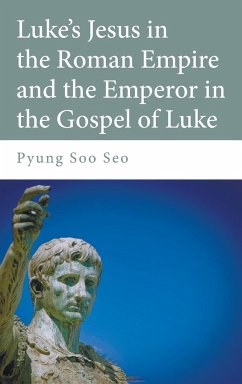
Luke's Jesus in the Roman Empire and the Emperor in the Gospel of Luke
Versandkostenfrei!
Versandfertig in 1-2 Wochen
34,99 €
inkl. MwSt.
Weitere Ausgaben:

PAYBACK Punkte
17 °P sammeln!
Luke provides valuable clues to an understanding of the religious and political power of the Roman Empire through Jesus's birth and trial accounts. Also, the book analyzes what role Luke's tax-related accounts play in relation to the emperor's authority. This volume presents a new argument: Luke emphasizes Jesus's interaction with tax collectors as a way of displaying his moral authority, seen in his intervening effectively with one of the most hated aspects of the empire, an aspect that the emperor was responsible for and should have dealt with. This analysis helps us examine Luke's portrayal...
Luke provides valuable clues to an understanding of the religious and political power of the Roman Empire through Jesus's birth and trial accounts. Also, the book analyzes what role Luke's tax-related accounts play in relation to the emperor's authority. This volume presents a new argument: Luke emphasizes Jesus's interaction with tax collectors as a way of displaying his moral authority, seen in his intervening effectively with one of the most hated aspects of the empire, an aspect that the emperor was responsible for and should have dealt with. This analysis helps us examine Luke's portrayal of Jesus's authority with a focus on the titles ""benefactor"" and ""savior."" Comparisons and contrasts are to be made between Jesus and the emperor. Thus, this study discusses how Luke elevates Jesus's authority on the basis of his stance toward the emperor. ""Scholars typically get sidetracked in dealing with tax collectors in the Gospels, thinking the main issue is collaboration with Rome. Pyung Soo Seo gets down to the more basic issue of unpopularity due to corrupt practices. From there he maps a more convincing route to seeing Luke interacting with the Empire. Seo shows Luke depicting Jesus as the one able to change tax collectors's corrupt practices, showing Jesus as possessing more moral auctoritas than the emperor, responsible for tax collectors but failing to rein them in."" --Peter Oakes, University of Manchester, Manchester, UK ""The reassessment of the relationship of early Christianity to Roman Imperial power has produced extreme and contradictory claims. . . . Pyung Soo Seo offers a well-argued, balanced, and moderate case for Luke's Jesus needing to be seen in relation to the power structures of the Roman Empire and for implicit critique of the emperor as an important Lukan technique for exalting Jesus."" --John Nolland, Trinity College, Bristol, UK ""Pyung Soo Seo has opened a fresh approach to the interface between Luke and the Roman Empire. He argues that Luke does not reject the emperor or the Empire as such. Rather, Luke implicitly and indirectly critiques the failures of the emperor in his moral and Imperial authority by depicting Jesus as a superior and more effective authority figure. In contrast to the emperor, Jesus brings morality to tax collectors by repentance and forgiveness, demonstrates pure benefaction by service to the people rather than as a quest for honor, and acts as savior by bringing peace through love of enemies rather than through violent conquest. This careful study will be of interest to students of Luke as well as to all those who are exploring the role of the Roman Empire among early Christians."" --David Rhoads, Lutheran School of Theology at Chicago, Chicago, IL Pyung Soo Seo is a Korean scholar who completed his PhD at the University of Manchester.




